
 |
|||||||
Couples Counselling in Downtown Toronto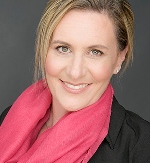
Looking for effective couples counselling in Toronto? Trying your best to find couples therapy that will help you improve communication, reconnect and sustain meaningful change? Given that the quality of our relationships greatly determines our quality of life, I am passionate about helping people to communicate and connect. Partnerships tend to improve when couples develop insight and fundamental skills for navigating their challenges. With courage, commitment and the help of an effective couple therapist, partners can often repair and strengthen their bond. A fulfilling relationship takes work - the motivation of both people to grow and change. You might feel nervous, hopeful or skeptical about the idea of collaborating with a couples counsellor. I offer a calm, compassionate and constructive environment in which to help you get to the heart of troubling dynamics. My clients are generally busy professionals intent on developing their capacity to love. Please email me, Lisa M Kelly, Registered Psychotherapist, to request a free consultation call re: couples counselling or couples therapy. couples counsellingCouples counselling might help. Review the signs:

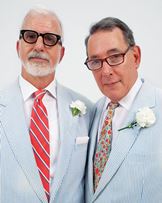
relationship counsellingRelationship counselling in Toronto: Why build relational and communication skills? Research indicates that fulfilling relationships significantly improve emotional and physical well-being. We know that close bonds form the foundation of caring communities. However, few of us know how to create and sustain loving connection. For lack of insight and relational as well as communication skills we find emotional intimacy confusing, complex and downright painful. We tend to enter romantic relationships idealizing our partner and believing that shared interests and values will sustain a great connection. Later - when irritated by characteristics we once loved...when we stumble into each other's emotional wounds and resent that our needs are not being met...when we misunderstand, react and question compatibility - we realize that lasting love requires more. The great news is that couples can and do improve their partnerships. But most need guidance, support and practice to develop the necessary relational and communication skills. Relationship counselling and couples therapy helps partners use their differences as opportunities for personal development, for creating a better relational dynamic and for establishing a stronger bond. If you are married or have been with your partner for years, you may feel that a lot is on the line. Beyond your own feelings and theirs, you may worry about the impact of a break-up on your children, extended family, mutual friends, investments, home and pets. Rather than face the fallout and pain of a failed partnership, you would like to get back on track and experience the best relationship or best marriage possible. marriage counselling & couples therapymarriage counselling in downtown Toronto:

couples therapy in downtown Toronto:

couples communication skillsCouples therapy for communication: Partners complain they repeatedly argue about the same "silly" things. Each tries to be heard in the best ways s/he knows how. One person might anxiously pursue with criticisms, demands and pleas. The other might withdraw, stonewall and shut down. In this dynamic, basic beliefs about oneself and about one's partner get triggered. Fears lurk, gaps widen and sparks fly. As long as this cycle continues, emotional intimacy is side-stepped. When communication breaks down partners feel ashamed, alone, inadequate, rejected, unloved and disconnected. They wonder whether to try harder or throw in the towel. 
Why communication skills matter: Communication skills, a subset of relational skills, enable us to cultivate fulfilling connections with others. Our relationships, which often evolve out of shared interests and values, ideally provide support for personal development, allow us to heal old emotional wounds, and to experience a sense of purpose, meaning, belonging, comfort and safety in the world. As such, they can contribute greatly to our sense of well-being and quality of life. Communication skills, in and of themselves, help to untangle current misunderstandings, prevent future disagreements, and to create, deepen and sustain emotional intimacy. In short, great communication is fundamental to quality relating. Are you looking to bridge the gaps and find some common ground? Are you hoping to be heard and heal relational wounds? Are you longing for your partner to open up? Or to offer a kind, loving response, regardless of how s/he feels? Would you like to engage one another with more honesty and tenderness or learn how to care for the space between you? Are you hoping for understanding versus a debate? Are you ready to build effective skills with which to strengthen your relationship or marriage for the years to come? If you are hoping for private, customized support with the emotional issues that fuel repetitive miscommunication, please contact me. Communicate at your best - Couples Counselling in Toronto:
Effective communication is essential to creating and sustaining healthy partnerships. The ability to communicate well - initiating a conversation and using phrasing, tone, facial expression and body language to convey a sensitive yet clear message - fosters emotional intimacy and helps to resolve existing as well as potential disagreements. Frequently, relationships benefit when partners express more vulnerability (self-disclose) and/or become more assertive. Interestingly, great communication is not just about speaking effectively. It's also very much about listening effectively. The ability to listen well - to offer your full attention, maintain eye contact, focus on the speaker's feelings, ask open-ended questions, request clarifying detail, repeat the words you believe you heard, acknowledge the intended message and refrain from interrupting - helps your loved one to feel heard, understood, validated and closer to you. Often when listening skills improve partners feel more connected. Sometimes couples fear that talking about issues will lead to hurt feelings, guilt, defensiveness, conflict, disconnection and ultimately to rejection and abandonment. The truth is that when issues are avoided - rather than identified and discussed - resentment and frustration build, feelings of distrust and detachment grow, and interest in physical intimacy wanes. Why not allow a relationship therapist to coach you as well as facilitate your important conversations? Communicate at your best with the help of Toronto couples counselling. Review the couples' communication checklist.
Couples counselling for better communication: Effective relational communication is multi-faceted - requiring self-awareness, honesty, courage, specific phrasing, paraphrasing, sensitivity, emotional presence, self-disclosure, permeability, responsiveness, compassionate curiosity, the ability to listen carefully while tolerating intense feelings, effective questioning, the capacity for empathy, and the use of a wide array of non-verbal modes of expression. Therefore, these skills may take some time to master. Customizing tools and exercises to each couple's unique conversational dynamics, I support partners in better understanding one another and their relational patterns. If you are looking for customized communication skills coaching, please contact me. I encourage couples to discuss problems as they arise - to deliver messages calmly, truthfully, succinctly and with care. Specific, heartfelt messages not only preserve feelings of goodwill but also build emotional connection. Among other important elements of relationship communication - such as active listening (involving repetition and acknowledgment of what was said) - I also encourage the use of "I" statements. That's where someone might say, "I feel x, when you say/do y." For example, "I feel disappointed when you arrive late." (Versus: "You disappoint me...You are always late...You are a disappointment.") Or, "I feel inadequate when you complain." (Versus "You complain too much." Or "You are so negative, so sensitive.") 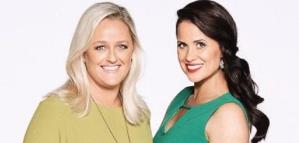
relationship therapyCan relationship therapy help? Given that problems arise for every couple you might wonder whether a fulfilling connection is even possible. If your partnership suffering from growing pains? It's best to get professional support before irreconcilable damage occurs. Instead of trying to understand each other, most partners make accusations and get defensive. This is where the trouble begins. Difficult patterns evolve in all relationships. l help partners to understand the fears and longings underlying their interactions. I then use communication skills coaching to help them transform the way they relate and connect. Would you like to strengthen your partnership? The path to resolution, healing, hope, happiness and fulfillment begins here. Benefit from the professional facilitation that relationship therapy offers. It will likely make communicating and connecting much easier and more productive. 
Why modern relationships are challenging: We are in a new era. Never before in history have we expected more from our significant other. Roles are no longer clearly defined and yet a modern day partner is expected to offer what an entire community used to supply: Now, a partner is expected to be all things simultaneously - provider, companion, confidant, protector/ nurturer, sounding board, problem solver, soul-mate, financial planner, household project manager and passionate lover. The current global context - with its higher cost of living, longer work hours, precarious employment and resulting work-life imbalance - heavily impacts our relationships. Further, our culture - which determines our value according to income, race, looks, credentials and the extent to which we produces and consumes etc. - insidiously erodes self-esteem. Various forms of oppression may compound the impacts of family of origin issues. It seems we can never quite have or be enough. Negative core beliefs and unfinished emotional business from childhood can then play out in troublesome dynamics. Decorum, manners, emotional attunement, responsivity - so integral to quality relating - have too often been replaced by individualism and self-entitlement. While technology provides opportunities to communicate, learn and connect, we are perhaps less emotionally present to our partners than ever. When stress builds, our devices offer distraction, escape and immediate gratification. Relationships, once fun (during courtship), become encumbered with responsibilities (paying bills, doing chores, childcare) and future plans (saving for a home or retirement). Time in which to enjoy life - either alone or together - seems to be in short supply. Through the years, differences become more glaring and partners might live seemingly separate lives. Find an experienced relationship therapist in Toronto. We often learn the most about ourselves with intimate partners. Interactions with loved ones can bring out the very best and worst in us. If the dynamic with your spouse or partner is a repeated source of pain, anxiety or frustration, try working with a relationship therapist or marriage counsellor. Often a couples expert can spot problematic patterns in communication, criticism, defensiveness or withdrawal and can help partners re-connect with qualities they value in each other. If you intend to get married, consider premarital counselling. Why relationship therapy in Toronto with Lisa?
couples therapyReading reviews about Toronto's best couples therapy? You may feel uneasy about the idea of getting professional help - especially if you have never seen a counsellor or therapist before. You don't know what to expect and the idea of facing your interpersonal and communication issues may be a bit daunting. You could be feeling frustrated or ashamed that despite your best efforts you haven't been able to sort things out on your own. Further, you might fear that delving into problems may make them worse. Alternatively, you could feel optimistic about gaining insights, improving communication skills, resolving problems and strengthening intimacy. I aim to help partners review their concerns, better understand one another's feelings, communicate more effectively and to make small specific agreements. I will ask about your goals as a couple and help you more clearly express your feelings and needs. I will also support you in becoming emotionally attuned and responsive to one another. You will have the chance to develop skills, as well as make requests and adjustments that potentially lead you to feel more comfortable and connected. The questions are: How can we work together to make your relationship better - not perfect, but better? How can you have the best possible couples therapy experience? Couples therapy is generally productive when partners are: 
Lastly, for therapy to be truly productive, each partner recognizes that an investment of time, effort and money may be necessary. Skills and insights are gained through commitment to the process. With effort a more secure bond can be built. In that therapists are not magic fairies, couples therapy is not a quick, overnight, magic fix or miracle cure for relationship issues. Partners are encouraged to assume increasing responsibility - little by little - for creating and sustaining a better relational dynamic. pre marriage counsellingPremarital counselling for the best marriage possible: Engaged to be married? Or considering making a proposal? Marriage is a very big commitment. If you don't deal with an issue before getting married, you will deal with it once you're married. As a marriage therapist, I regularly see couples grappling with longstanding, inter-twining issues. I see them once a lot of complex damage has been done. If only they had come sooner, they say. If only they had taken the time to develop the necessary relational skills. You have chosen a life partner. Be proactive. Gain the negotiation, intimacy and communication skills that will help you to navigate your inevitable differences. These are the skills that also help to deepen and sustain feelings of connection over the long run. Discuss your ideal future as well as issues that might undermine your relationship. I would be honoured to facilitate your very important conversations. Questions for pre marriage counselling:

Premarital therapy for pre marriage issues: If the big day is rapidly approaching and the stress is mounting, feelings of anxiety, ambivalence or doubt may be surfacing with a vengeance. You might not know what to do or how to cope. A life-changing event is on the horizon. Invitations might have been sent out. Friends and family may have booked flights and accommodations. Out of the blue, you and/or your fiance feel the gravity of the situation. You may be quibbling about wedding plans or your contrasting visions of the future. On the other hand, if you agree about current and future goals, you may disagree about how to achieve them. You may be contemplating big purchases and starting a family and still wonder if marriage is the best route right now. Ambivalent feelings are at the core of every relationship. We all want a balance of security and freedom, of closeness and distance. Making things more complicated, we all have contradictory feelings about our partner. We feel both appreciation and irritation, fulfillment and disappointment, love and hate. If we deny the downsides and continue hoping for the best, we stockpile resentment. Only when we face our difficulties can we begin to make improvements. Your success as a couple will likely be determined by whether and how you choose to deal with your inevitable challenges. This is where premarital counselling is invaluable. You want difficult conversations to go as smoothly as possible - now awry. Be proactive and build a strong foundation before getting locked in. Pre marital relationship counselling can help you:
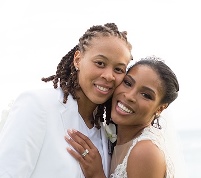
LGBT couples counsellingLGBTQ - Queer couples therapy in Toronto Perhaps you and your partner are having difficulties and are considering working with a professional. As a lesbian, gay or bisexual person, you might feel particularly uncomfortable discussing your interpersonal issues with family, friends, colleagues or with members of your religious or cultural communities. Alternatively, you might feel quite safe in being out. Regardless, you may have exhausted your own resources for improving your marriage or partnership. You are now looking for fresh perspectives and insight from someone - a counsellor - with no vested interests. I would be happy to help you clarify issues, improve communication and connect better. My queer couples therapy Toronto office is in Cabbagetown next door to the LGBTQ village. Hoping to gain insight and connect? Self-awareness, courage, sensitivity and communication skills are key to healthy relating and take time to develop. If you would like to better understand your partner, improve the quality of your interactions and feel more connected, allow me to help. I can facilitate a constructive, meaningful and moving conversation. Is it best to find a couples therapist? The sooner you speak with a couples therapist, the better. Why? Because you will likely get to the heart of the matter, as well as gain the insights and skills needed to make improvements before it’s too late. You have invested your time, energy and care. Now invest in developing the relational skills which support the health of your partnership for the long run. Why end things with your current partner just to face similar issues with someone else in the future? 
Unresolved relationship issues:
Queer couples therapy and gay couples counselling in Toronto With your courage and commitment to the couples counselling process, you and your partner will likely communicate more effectively and feel closer. Clients have said that couples therapy not only gave them ways to reconnect but also helped them create and sustain a deeper bond for the long run. Many couples report that their initial session relieved some tension and began to open the lines of communication. benefits of marriage counsellingConsidering a marriage counsellor in Toronto? Partners wonder if their issues could actually benefit from professional support. They wonder if books and videos about relationships might be more practical or cost effective. They consult mom, dad, other family members, friends, colleagues and even their dogs. Marital counsellors - unlike other resources and well-intentioned beings - can spot, understand and help to resolve the recurrent communication issues and emotional triggers that lead to dysfunctional dynamics. While getting to the heart of the matter, they facilitate constructive conversation, repair, reconnection, an improved dynamic and the creation of a shared vision for the future. In healthier marriages, "yes" is the answer to:

Keys to creating loving connection:
Did you know that emotional attunement and responsiveness are key determinants of healthy marriages? Are you and your partner attuned to one another? Do you respond to each other's feelings and needs with loving concern? Are you taking an active interest in each other's life and growth? Do you regulalry nurture the space between you? After ruptures, do you acknowledge your respective attempts at repair? If not, you may be stuck in patterns which are eroding your connection. Every interaction offers the opportunity to connect or to turn away. Couples counsellors help partners: 1) recognize the circumstances, assumptions, feelings, fears, longings and behaviours which ultimately lead to disconnection and 2) improve communication and relational skills that help couples reach, respond, repair and reconnect. 10 benefits of relationship counsellingA good relationship therapist or counsellor can help you to:

Meet regularly for relationship counselling to:
couples and marriage counsellingTrying to find a Toronto couples counsellor? The GTA is fortunate to be home to many of Canada's leading couples, premarital and marriage counsellors as well as relationship counsellors, therapists and coaches. With so many experts to choose from, you may feel overwhelmed. Looking for the best marriage counselling in Toronto? When looking for the best marriage counselling in Toronto consider that "best" is subjectively defined. What do you believe makes for exceptional relationship counselling? Research indicates successful outcomes are reported when clients feel rapport with their counsellor. Do you feel comfortable, accepted, understood and respected when speaking with the marriage counsellor? Can s/he customize his or her knowledge, training, education and experience to your relationship? Will you gain insights, tips, tools, strategies and communication skills with which to improve your interactions and create a more secure bond? Although all couples experience relational challenges and common dysfunctional interactions, every couple's dynamic is unique. Find a responsive professional who can equip and empower you to connect meaningfully over the long run. 
relationship issues therapyIf you are interested in couples counselling but your partner isn't... Perhaps your partner is not open to the idea of working with a couples counsellor. Understandably, you may feel discouraged. However, it's possible to develop skills and make changes on your own - changes that might improve your communication, interactions and sense of well-being. Maybe you have something important to say but your message hasn't been getting through. Adjustments to your delivery or phrasing could greatly improve your chances of being heard. Sometimes we look for approval from our partner when we first need to approve of ourselves. We become outwardly pleasing yet inwardly resentful. Fearing conflict, rejection and abandonment, we often avoid discussing our true feelings and needs. It could be that you secretly dislike some things your partner says and does. Maybe your partner is unwilling or unable to change despite promises to the contrary. S/he might seem distant and dismissive. Or on the other end - suffocating, critical or over-bearing. What to do? You contemplate leaving but feel plagued with ambivalence. That ambivalence is worth exploring before making a move. Whatever the case, individual counselling for interpersonal problems can be helpful. Reflecting on how you got to where you are at can be eye-opening and help you to have more self-compassion around the decisions you've made. Identifying exactly what you would like for yourself in a best case scenario is also essential to moving forward. 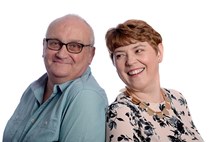
8 relationship questionsRelationship counselling in Toronto asks do you....?

couples and relational stylesCouples therapy Toronto: attachment and relational styles How do you and your partner relate? How do you bond, interact and react? Ever noticed you and your partner seem to be caught up in a repetitive dynamic where each of you plays an opposite role - such as planner-improviser, parent-child, cat-mouse, boss-employee, cop-criminal? How do the roles you play reinforce your partner's role/s? Repetitive dynamics often have a lot to do ways partners inadvertently trigger one another and evoke aspects of each other's personalities. What are your respective attachment styles? Anxious? Avoidant? Secure? We all need separateness and closeness, autonomy and togetherness. Some of us come out of childhood - because of what we didn't get - needing more connection, protection and safety. Meanwhile, others of us come out of childhood - because of what we got too much of - needing more space, freedom and boundaries. Frequently, difficult dynamics evolve when one partner copes by avoiding difficult conversations and the other by anxiously pursuing. What philosophies do you bring to your relationship? "You do your thing. I do mine?" "It's us against the world?" "I put you on a pedestal and think of you first?" Were you raised for loyalty (to think in a collective framework, to consider others) or for autonomy (encouraged to be self-reliant)? What are your primary love languages? Gifts, words of affirmation, acts of service, physical touch or quality time? Which of your partner's ways of expressing love register most with you? What leaves you feeling loved, safe, close, appreciated? How do you express love? 
10 keys to a healthy marriagePremarital counsellors and marriage counsellors:

codependent or overly adaptive in your relationships?Overly adaptive? Love dependent? Is the degree to which you adapt to your partner self-detrimental?
Review your concerns with a relationship therapist. At times, we overly adapt to particular people. Some research indicates that people who have parents who emotionally abused or neglected them in childhood are more likely to overly adapt to their partners. Neglected and abused children often learn to subvert their own needs to please a difficult parent. This beginning sets them up for a long-standing pattern of trying to get love and care from someone who is emotionally unattuned, unavailable and or unresponsive. Dysfunctional families do not acknowledge that problems exist. They don't talk about or address problems. As a result, family members learn to repress emotions and disregard their own needs. They become "survivors" who develop behaviours that help them minimize, deny or avoid difficult emotions. They detach and become self-sufficient. They don't discuss each other's feelings, needs, fears or impact. They don't make requests or trust. The emotional development of members of dysfunctional families is often thwarted. If you are overly adaptive with your partner, breaking up isn't necessarily the ideal or only solution. You might begin to: set boundaries, honour your bottom lines and create a fulfilling life outside of your relationship: 1) Spend time with people who value you, hear you and who are responsive to your feelings and 2) develop and pursue your own interests. You might also reflect on ways you see and respond to yourself - finding ways to become more self-loving. Consider working with a therapist when making any of these changes.  couples counseling downtown
couples therapy reviewsBest couples therapy Toronto reviews When reading comments about the city's leading couples therapists, bear in mind that clients who find couple therapy helpful will not tend to write unsolicited reviews. This is because they are understandably protective of their privacy. If you are looking for the "best couple therapy," try to define what those words mean to you. You and your partner might have different (subjective) ideas about what constitutes "best." The decision of whom to see usually comes down to factors such as cost, location, rapport, availability, experience, word of mouth referrals etc. I believe that most couples therapists have something of value to offer - even if their approaches differ widely. Successful outcomes are more likely when: 1) couples engage in and commit to the process - meaning attend for a series of sessions and 2) partners feel comfortable with their therapist. 
Determine what "best" means to you. Ask yourself:
Review Toronto couples counseling fees: 2.0 hours: $270 ($135/ hour). Fees include HST. Sessions are available weekday days and evenings. Counseling for couples in downtown Toronto free consultation by phone (up to 15 minutes)
Spelled the American way - Couples Counseling, Marriage Counseling, Relationship Counseling and Premarital Counseling in Toronto: downtown Toronto, Cabbagetown, Rosedale, Riverdale, Yorkville, the Distillery, St. Lawrence Market, Leslieville, the GTA. I provide relationship counseling for partners who are: If you are hoping to clear up misunderstandings, build communication skills, be heard, learn how your partner feels, reconnect and improve your relational dynamic, contact me. I would love to help you create meaningful change and deepen your bond. Now is the time to begin. couples communication coaching:Relationship counselling - communication: disclaimerInformation on this website and web page is intended to be informational and should not be used to diagnose anyone or oneself. Further, the information provided does not constitute medical or psychological advice and should not be used as a substitute for therapeutic work with an appropriate mental health professional. If information is misinterpreted and/or consequences result from use of information on this website, this website/ its owner is not responsible. This website does not endorse any other website linked to it.
|
lisa@lisamkelly.com |
Skype Name:lisamkelly.com |
||
oaccpp member, marriage & couples counselling |
all rights reserved | lisa m kelly, toronto psychotherapist 2011 | couples |
|||